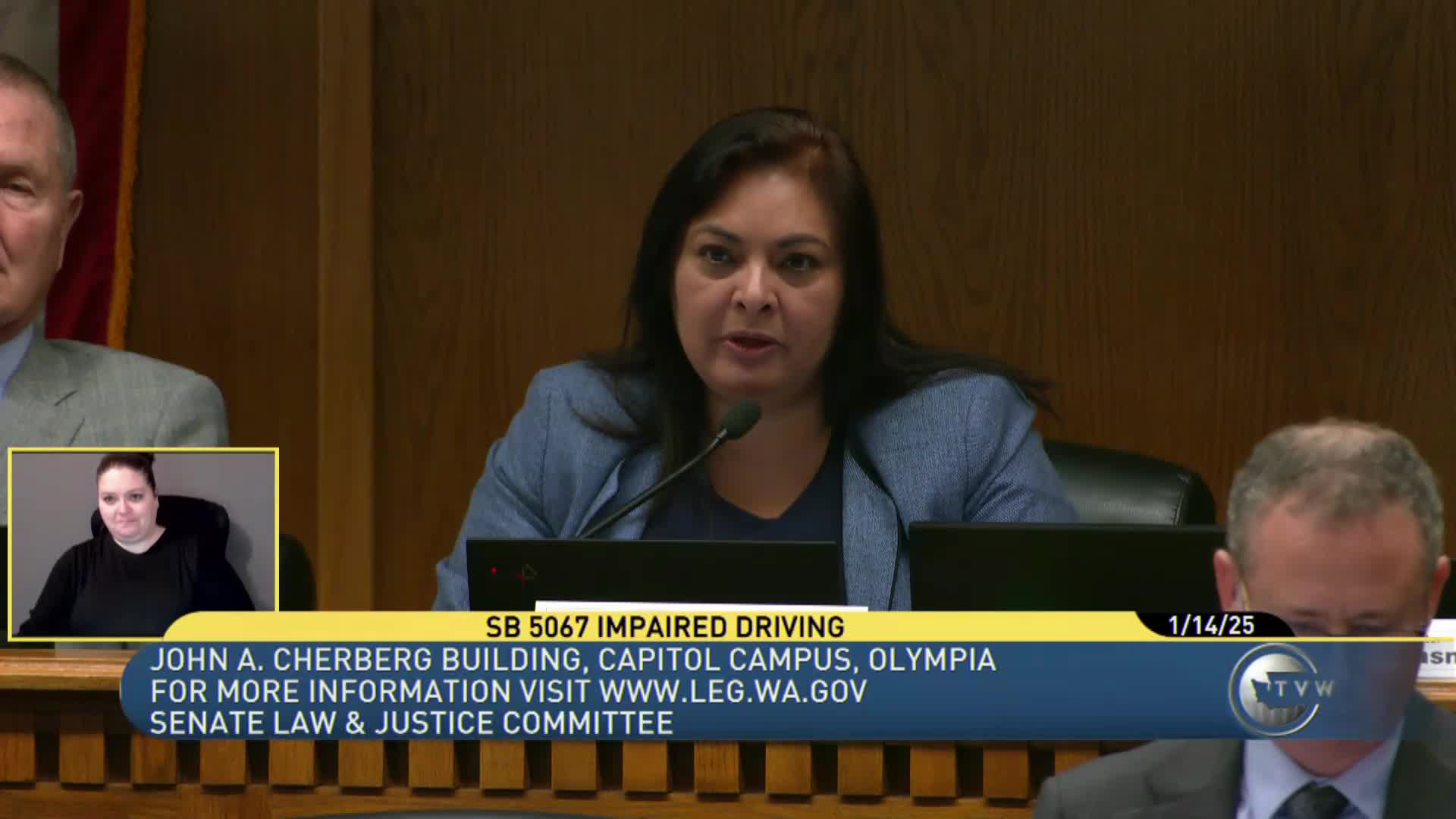Article not found
This article is no longer available. But don't worry—we've gathered other articles that discuss the same topic.
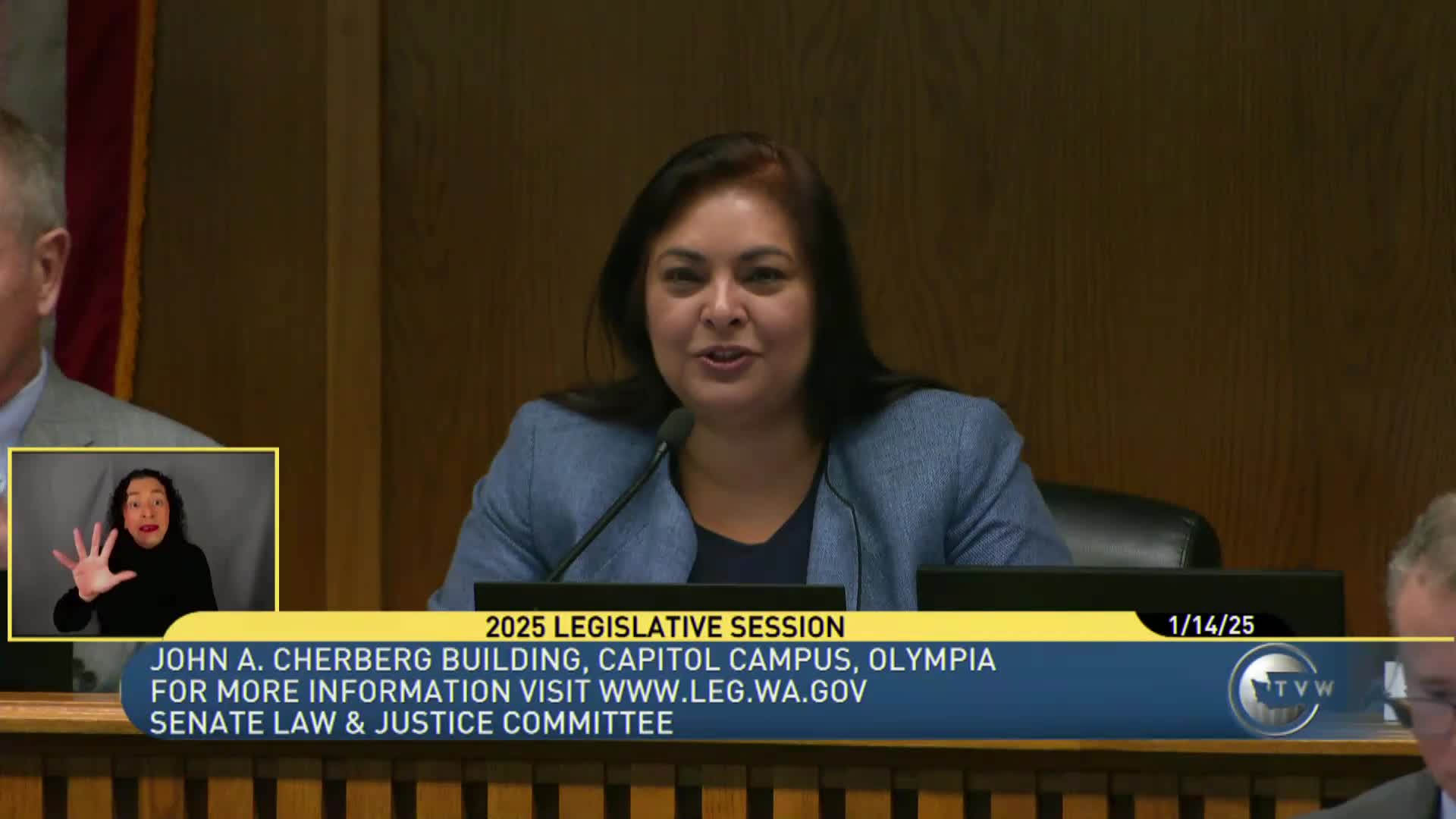
Panel hears evidence and opposition to lowering per-se DUI limit to 0.05; no committee vote recorded
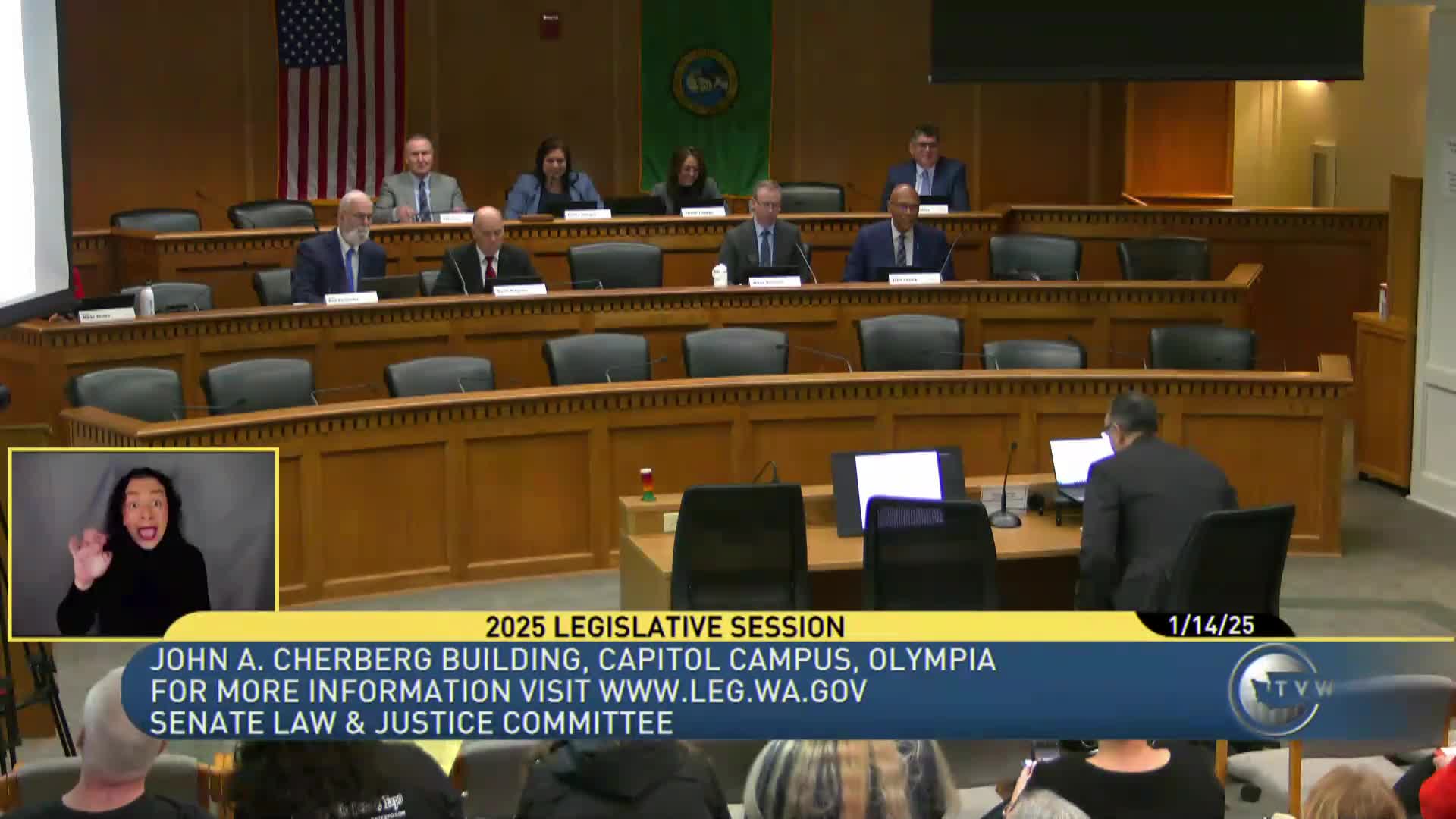
Senate committee hears bill to ban certain wild animals in traveling acts; lawmakers hear broad support and opposition
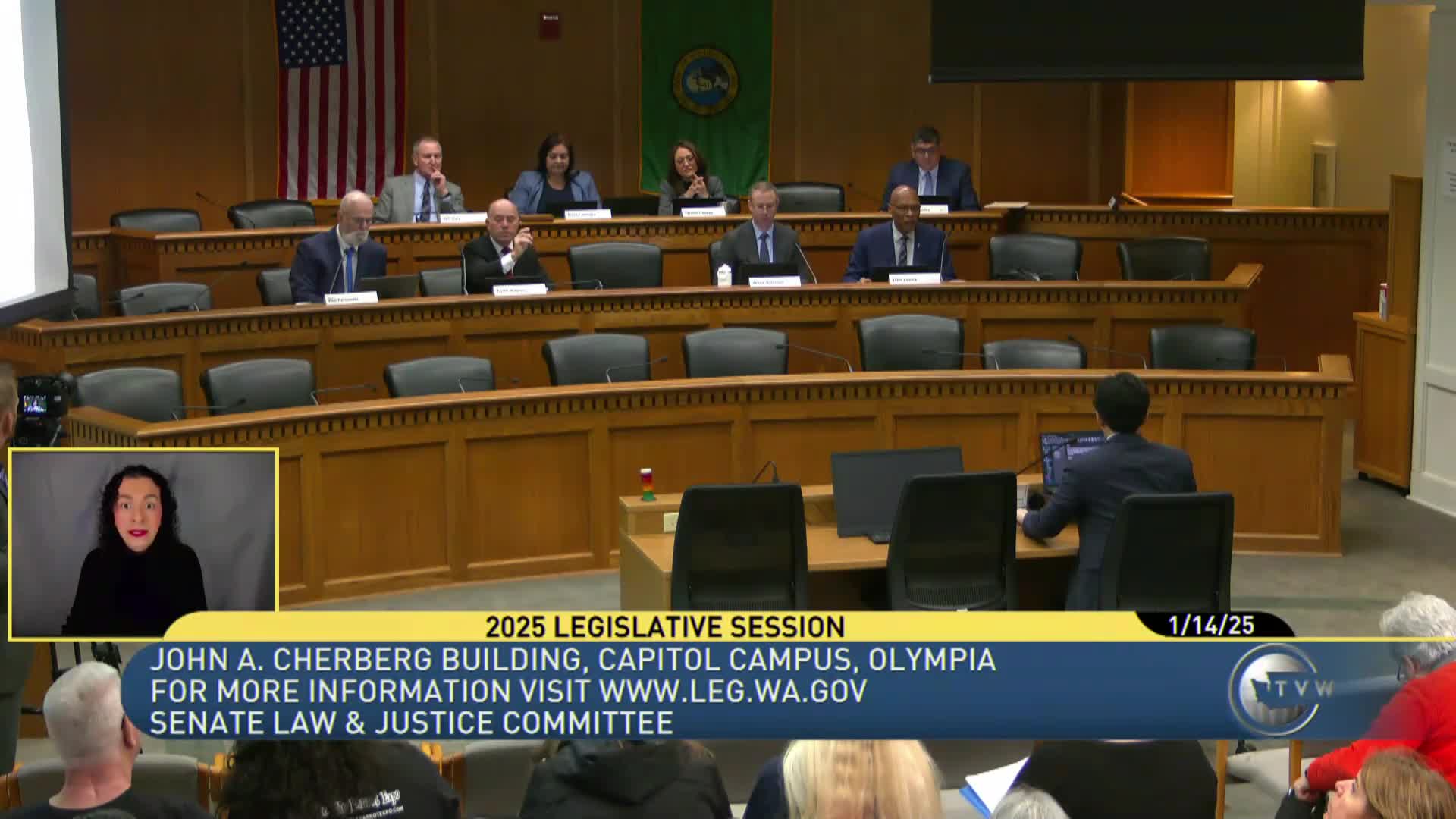
Committee hears technical updates to Washington Business Corporation Act; no final action
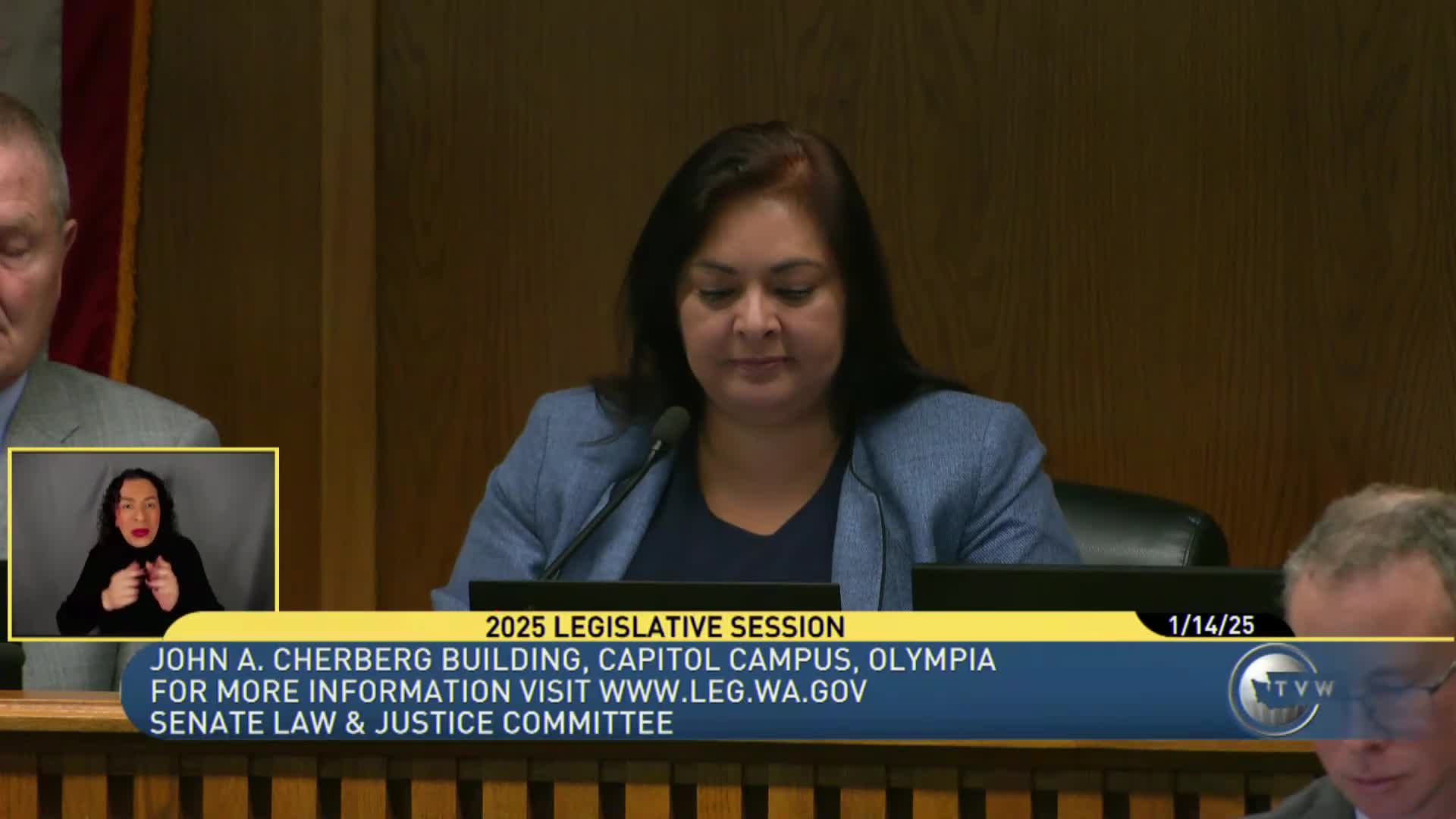
Lawmakers consider shortening court exhibit retention from six to five years to align schedules
